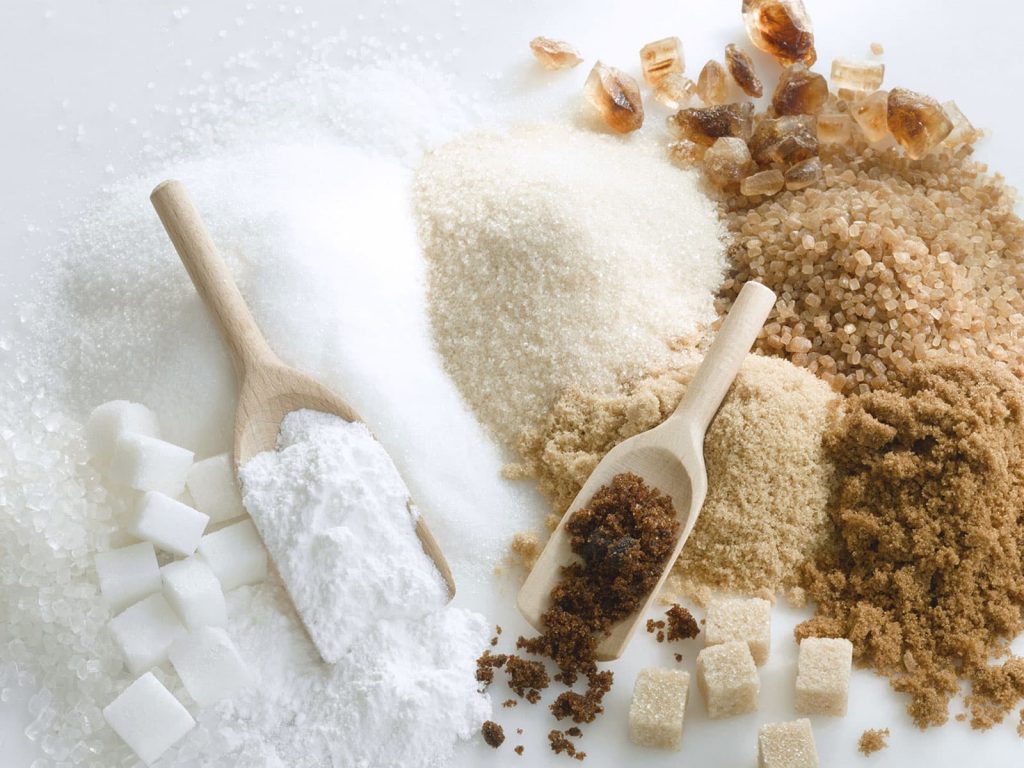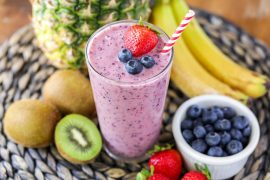Myths about sugar debunked
There are a few things we can all say for sure about sugar. Number one, it tastes great. And number two? Well, here is where it gets really confusing.
For instance, are some types of sugar healthier than others? And will cut it out really put you on the fast track to losing weight, easing acne, staving off mood swings, or any other health woes?
There was a time when humans only had access to sugar for a few months a year when the fruit was in season. Some 80,000 years ago, hunter-gatherers ate fruit sporadically and infrequently, since they were competing with birds.
Now, our sugar hits come all year round, often with less nutritional value and far more easily – by simply opening a soft drink or cereal box. It doesn’t take an expert to see that our modern sugar intake is less healthy than it was in our foraging days. Today, sugar has become public health enemy number one: governments are taxing it, schools and hospitals are removing it from vending machines and experts are advising that we remove it completely from our diets. It has even been blamed for possibly increasing the risk of contracting infections because it allegedly suppresses the immune system, although in reality, the impact it has on our ability to fight off diseases is a great deal more complicated than that.
But are all sugars really bad for health? Is there really anything like good sugar? This article will consider some myths about sugar and what the health experts are saying to debunk such myths.
- All sugar is bad sugar
You’ve probably heard over and over again about how we should all be eating less sugar. But what experts really mean is that we should be eating less added sugar. That’s the added sugar in foods to make them taste sweet(er) — like the brown sugar in chocolate chip cookies or the honey you drizzle on your yoghurt.
Added sugar is different than the sugar that occurs naturally in some foods, like fruit or milk. For one, natural sugar comes with a package of vitamins, minerals, and nutrients that help offset some of the negative aspects of the sugar content, explains Georgie Fear, RD, author of “Lean Habits for Lifelong Weight Loss.” For instance, the fruit has fibre that causes our body to absorb sugar at a slower rate.
The takeaway? Don’t worry about things like whole fruit or plain dairy (like milk or unsweetened yoghurt). Sources of added sugar — desserts, sugary drinks, or packaged foods — are the things you need to keep an eye on.
- Minimally processed or natural sugars are better for you.’
It is true that minimally processed sweeteners, like honey or maple syrup, contain more nutrients than highly processed ones, like white sugar. But the amounts of these nutrients are very tiny, so they probably won’t have a measurable impact on your health. To your body, all sources of sugar are the same.
What’s more, these natural sweeteners don’t get any kind of special treatment in your body. The digestive tract breaks down all sources of sugar into simple sugars called monosaccharides.
According to Amy Goodson, a registered dietician and nutrition communications consultant, “Your body has no idea if it came from table sugar, honey, or agave nectar. It simply sees monosaccharide sugar molecules,”. And all of these sugars deliver 4 calories per gram, so they all have the same impact on your weight.
- You should cut out sugar from your life completely.
You don’t need to cut added sugar out of your life completely. Different health organizations have different recommendations for the amount of sugar you should limit yourself per day. But they all agree that there’s room for some sugar in a healthy diet.
The U.S. Dietary Guidelines Trusted Source say that an adult eating 2,000 calories per day should have less than 12.5 teaspoons, or 50 grams, of added sugar daily. (That’s roughly the amount in a 16-ounce cola.) But the American Heart Association says women should have less than six teaspoons (25 grams), and men should have less than nine teaspoons (36 grams) per day.
Ultimately, your body doesn’t need sugar, so having less is better, but that doesn’t mean that you can’t have any at all, though. It’s all about moderation.
- It’s impossible to avoid sugar
A lot of persons eat more sugar than they should, according to the U.S. Dietary Guidelines. Not sure whether you’re one of them? Try logging your food intake in a food-tracking app for a few days. That can give you a sense of how much sweet stuff you’re actually eating and make it easier to eat less added sugar.
If you’re overdoing it, cutting back doesn’t have to be painful. Instead of swearing off your favourite sweet treats, try having smaller portions. “After all, there are half as many grams of sugar in half a cup of ice cream compared to a whole cup,” Fear says.
Keep an eye on packaged foods, too. Things like bread, flavoured yoghurt, cereal, and even tomato sauce can all have more added sugar than you might expect. So, pay attention to nutrition labels and look for options that’ll help you stay within your daily sugar limit.
- Sugar is making you sick.
You probably have heard that eating sugar will give you heart disease, Alzheimer’s, or cancer. But eating sugar in moderation isn’t going to shave years off your life. An American Journal of Clinical Nutrition Trusted Source study that followed more than 350,000 adults for over a decade found that added sugar consumption was not linked to an increased risk for death.
While a moderate amount of sugar doesn’t seem to be harmful, having too much can put you at risk for gaining weight. But so, can have too many potato chips, too much cheese, or even too much brown rice.
“Excess total calories in our diets, including those from sugar, contribute to weight gain, which could lead to obesity and the possibility of the onset of chronic disease,” explains Kris Sollid, RD, senior director of nutrition communications for the International Food Information Council Foundation.
The bottom line? Treating yourself to a doughnut on Sunday mornings won’t hurt. But if you know it’ll trigger you to eat several doughnuts and send you over your daily calorie limit; you might want to steer clear. In the same vein, don’t use this fact to push someone to eat sugar when they don’t want to.
- Sugar-free replacements are a good alternative.
It might be tempting to trade sugary foods for ones made with low- or no-calorie sweeteners, like diet soda or sugar-free cookies. But making that swap could backfire and isn’t likely to be healthier.
Consumption of sweeteners like aspartame, saccharin, and sucralose are linked to weight gain, not weight loss, according to an analysis of 37 studies published in the Canadian Medical Association Journal. What’s more, they were tied to a higher risk for high blood pressure, type 2 diabetes, metabolic syndrome, heart attacks, and stroke.
Experts still don’t fully understand how these types of sweeteners affect the body. But mounting evidence suggests that they can have a negative impact on blood sugar, make it harder to keep your appetite in check, and even mess with your gut bacteria. And those things could put you at risk for obesity and related health problems.
Do you still think eating sugar can be likened to eating with the enemy? Mums have the responsibility of ensuring their kids have a balanced diet that keeps them healthy. Whether they want to include sugar in that diet or not is a personal decision.
Happy choosing!





Comments are closed.